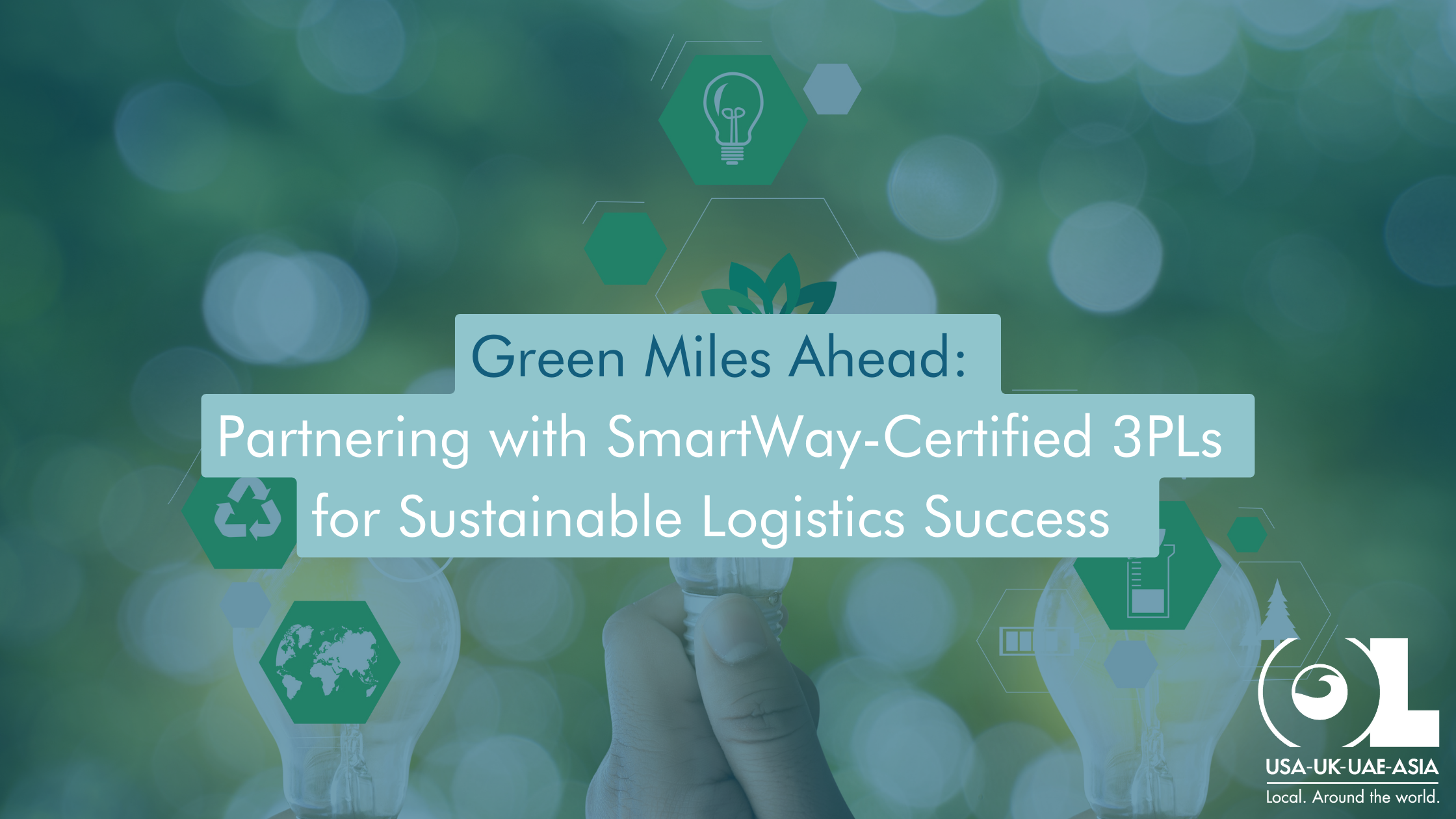In today’s fast-paced business world, where efficiency and sustainability are paramount, the transportation and logistics industry plays a crucial role. As businesses strive to reduce their carbon footprint and enhance operational efficiency, certifications like SmartWay Partner from the Environmental Protection Agency (EPA) have gained significant importance.
What is SmartWay Partner Certification?
The SmartWay program, initiated by the EPA, is a collaborative effort aimed at promoting cleaner and more sustainable freight transportation practices. It serves as a framework for businesses to improve their environmental performance while optimizing their freight operations. When a Third-Party Logistics (3PL) company receives SmartWay Partner certification, it signifies a significant commitment to eco-friendly and efficient logistics practices.
SmartWay Partner certification is awarded to 3PLs that meet stringent criteria set by the EPA. These criteria include:
- Reducing Emissions: Certified 3PLs must demonstrate efforts to reduce harmful emissions from their transportation activities. This can involve using low-emission vehicles, implementing fuel-efficient driving practices, and optimizing route planning to minimize fuel consumption.
- Fuel Efficiency: SmartWay-certified 3PLs are required to use advanced technologies and strategies to improve fuel efficiency across their fleet. This includes adopting aerodynamic designs, using fuel-efficient tires, and employing telematics systems for real-time monitoring and optimization.
- Environmental Compliance: Companies seeking SmartWay certification must comply with environmental regulations and standards related to air quality, emissions, and waste management. They are expected to prioritize environmental responsibility in all aspects of their operations.
- Data Reporting: SmartWay Partners are committed to transparent reporting of their environmental performance data. This includes tracking and reporting metrics such as fuel consumption, greenhouse gas emissions, and other key indicators to showcase their progress towards sustainability goals.
Environmental Impact and Corporate Social Responsibility:
Corporate Social Responsibility (CSR) has evolved from being a buzzword to becoming a fundamental aspect of business operations. One of the key pillars of CSR is environmental sustainability, which addresses the impact of business activities on the environment and communities. In today’s business landscape, companies are increasingly recognizing the importance of integrating sustainable practices into their operations to fulfill their CSR commitments and contribute positively to society and the planet.
Importance of Environmental Sustainability in CSR:
- Stakeholder Expectations: Stakeholders, including customers, investors, employees, and communities, are placing greater emphasis on environmental responsibility. They expect businesses to minimize their environmental footprint and actively engage in initiatives that promote sustainability.
- Regulatory Compliance: Governments and regulatory bodies worldwide are implementing stricter environmental regulations. Compliance with these regulations is not just a legal requirement but also a moral obligation for companies to operate ethically and sustainably.
- Reputation and Brand Image: A company’s environmental stance directly influences its reputation and brand image. Businesses that prioritize environmental sustainability in their CSR efforts often gain positive public perception, enhance brand loyalty, and attract environmentally conscious consumers and investors.
Partnering with a SmartWay-Certified 3PL and CSR Alignment:
When a company partners with a SmartWay-certified Third-Party Logistics (3PL) provider, it aligns with its CSR goals in several ways:
- Reducing Carbon Footprint: SmartWay-certified 3PLs are committed to reducing emissions and promoting cleaner transportation practices. By outsourcing logistics to such providers, companies contribute to reducing their overall carbon footprint associated with freight transportation.
- Promoting Sustainable Supply Chains: Collaboration with a SmartWay-certified 3PL encourages sustainability throughout the supply chain. From efficient route planning to using eco-friendly transport modes and technologies, these practices contribute to building a greener and more sustainable supply chain ecosystem.
- Enhancing Transparency: SmartWay certification requires rigorous data reporting and transparency regarding environmental performance metrics. Partnering with a certified 3PL enables companies to access detailed insights into their supply chain’s environmental impact, facilitating informed decision-making and continuous improvement strategies.
- Meeting Stakeholder Expectations: Engaging with environmentally responsible partners like SmartWay-certified 3PLs demonstrates a company’s commitment to CSR and sustainability. It enhances stakeholder trust and reinforces the company’s reputation as a socially and environmentally conscious organization.
By partnering with a SmartWay-certified 3PL, businesses can navigate the intersection of efficiency and sustainability seamlessly. This collaboration not only aligns with their CSR commitments but also sets a standard for responsible logistics practices. As we move forward in an era where environmental consciousness and business success are intertwined, choosing a SmartWay-certified partner becomes not just a choice, but a strategic imperative. It’s about more than just transportation logistics; it’s about driving positive change, one mile at a time, towards a brighter, greener future for all.



